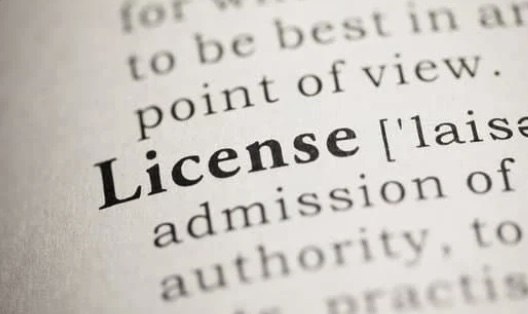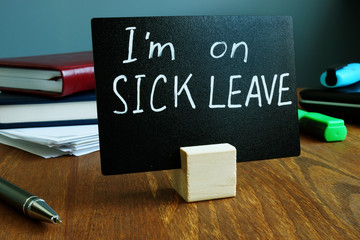Michigan’s labor laws for minors are intended to ensure a secure and conducive working atmosphere that fosters their educational opportunities. Dealing with the intricacies of employment can be overwhelming, particularly for young individuals. This article examines Michigan’s minor labor regulations in detail so that employers, minors, and parents comprehend the guidelines formulated to safeguard youth at work.
Michigan Minor Labor Laws: An Overview
Michigan’s labor regulations for minors are strict to guarantee that youngsters can acquire work experience without jeopardizing their health and education. These statutes delineate the permissible tasks for minors, the number of hours they may work, as well as requirements regarding necessary permits before commencing employment.
Employment Certificates in Michigan
Employers are obligated to confirm that minors possess the appropriate work permits prior to employment. In Michigan, labor laws mandate two primary types of permits being issued for minors.
Work Permit for Minors Under 16
The work permit designed for minors under the age of 16 is customized to their requirements. It enforces more rigorous rules on job settings, emphasizing safety and providing sufficient time for education. Some crucial aspects of this type of work permit are:
- Age Requirement: Restricted to minors under the age of 16.
- Work Hours: Limited work hours are implemented to minimize interference with educational responsibilities.
- Work Conditions: The work conditions require strict adherence to safety precautions and limiting the types of permissible tasks.
- Educational Compliance: To guarantee adherence to mandatory education regulations, Educational Compliance ensures that the minor’s employment does not impede their educational obligations.
Work Permit for Minors Aged 16 and 17
The work permit for minors aged 16 and 17 offers a bit more leeway than the one issued to younger minors. It recognizes that individuals within this age group may have distinctive educational or vocational objectives while also emphasizing their safety and educational commitments as top priorities. Noteworthy aspects of this particular permit include:
- Age Requirement: Applicable to minors aged 16 and 17.
- Work Hours: The permissible work hours are slightly more expensive for older minors in contrast to younger ones.
- Work Types: The types of work available are expanded while adhering to legal and safety regulations, allowing for a broader range of employment prospects.
- Educational Considerations: Continues to stress the significance of maintaining equilibrium between academic duties and responsibilities in the workplace.
Permitted Work Hours for Minors
Hours that minors can work in Michigan are subject to specific labor laws and vary according to their age, time of year, and school status.
During School Term
Minors are required to adhere to restricted work hours during the academic term in order for their education to take precedence and avoid interference with school obligations.
- Minors aged 14-15: Those between the ages of 14 and 15 are allowed to work, but they have a maximum weekly limit of 18 hours. It’s crucial to note that working during school hours is prohibited for minors in order to emphasize their education.
- Minors aged 16-17: Minors between the ages of 16 and 17 are granted a little more leeway. They can work for up to twenty-eight hours per week while attending school. Nevertheless, limited exemptions exist that provide allowances for employment during typical schooling times under specific permits primarily intended to support vocational or apprenticeship initiatives.
During Summer Vacation
Summer vacation provides an opportunity for minors to work more hours, but still within regulated limits to maintain a balance between work and other activities.
- Minors aged 14-15: During summer vacation, minors in this age group can work for up to 40 hours per week. However, their work hours must adhere to specific time restrictions. Work should not start before 7:00 AM or end after 9:00 PM, ensuring that minors have adequate rest and time for other activities.
- Minors aged 16-17: Older minors, aged 16-17, have a higher permissible limit during summer vacation. They can work up to 48 hours per week. Additionally, they have more flexibility in their work hours compared to younger minors, allowing for more varied start and end times.
Compliance and Exceptions
It’s essential for employers and minors to understand and adhere to these regulations to avoid legal consequences. Employers should verify the age and school status of minors before scheduling their work hours and ensure that they comply with the applicable labor laws. Similarly, minors should familiarize themselves with their rights and limitations regarding work hours to protect their well-being and education.
Prohibited Occupations

Certain jobs are considered too hazardous for minors under Michigan labor laws. Minors are generally prohibited from working in:
Manufacturing
The manufacturing sector encompasses a broad spectrum of activities, ranging from production and assembly to packaging and distribution. However, minors are prohibited from engaging in manufacturing jobs due to the inherent risks associated with industrial processes and machinery.
- Hazards: Working in manufacturing settings exposes individuals to various dangers, including heavy machinery, moving parts, and conveyor belts. Additionally, exposure to potentially hazardous chemicals poses health risks to young workers.
- Examples: Assembly line work, machine operation, and tasks involving heavy lifting are typically off-limits for minors under Michigan labor laws.
Mining
The mining industry involves extracting valuable minerals and resources from the earth, often in challenging and hazardous environments. Michigan law prohibits minors from participating in any mining-related activities to ensure their safety and well-being.
- Hazards: Mining operations pose numerous risks, including cave-ins, equipment malfunctions, and exposure to toxic gases. The unpredictable nature of mining activities makes it unsuitable for young workers.
- Examples: Underground mining, surface mining, and quarrying operations are strictly prohibited for minors to protect them from potential harm.
Operating Heavy Machinery
Jobs that require the operation of heavy machinery are inherently dangerous, particularly for individuals lacking experience and maturity. Michigan prohibits minors from operating heavy equipment to minimize the risk of accidents and injuries.
- Hazards: Operating heavy machinery poses significant risks, including crush injuries, entanglement, and accidents due to lack of proper training and supervision. The potential for catastrophic accidents makes it imperative to restrict minors from such activities.
- Examples: Forklift operation, bulldozer driving, and operating industrial-grade equipment are forbidden for minors under Michigan labor laws.
Exposure to Dangerous Chemicals or Explosives
Any job involving exposure to hazardous chemicals or explosives is off-limits for minors in Michigan. This includes roles where minors may handle, transport, or work in proximity to such substances.
- Hazards: Exposure to dangerous chemicals can result in chemical burns, respiratory problems, and long-term health effects. Similarly, working with explosives poses severe risks of injury or death, necessitating strict regulations to protect young workers.
- Examples: Handling of corrosive chemicals, working with explosives, and jobs in chemical manufacturing facilities are prohibited for minors under Michigan labor laws.
Implementing Michigan Labor Laws for Minors
For effective implementation of Michigan labor laws for minors, employers must maintain accurate records of minors’ work schedules and duties. Regular audits and checks by the Michigan Department of Labor ensure compliance with these laws.
Employer Responsibilities
Employers bear a considerable responsibility in ensuring compliance with Michigan labor laws for minors. Their responsibilities encompass several key areas:
- Verification of Work Permits: Employers must diligently verify that minors possess valid work permits issued by the relevant authorities. These permits serve as official documentation of a minor’s eligibility to work and outline any restrictions or conditions associated with their employment.
- Adherence to Work Hours: Michigan labor laws impose strict regulations on the number of hours minors are permitted to work, depending on their age and the type of employment. Employers must meticulously adhere to these work hour restrictions to prevent overwork, fatigue, and potential health risks for young workers.
- Safe Work Activities: Employers are tasked with ensuring that minors are engaged in safe and permissible work activities. This includes prohibiting minors from performing tasks deemed too hazardous or inappropriate for their age and level of experience.
Compliance Monitoring
To uphold the integrity of Michigan labor laws for minors, regulatory agencies such as the Michigan Department of Labor conduct regular audits and inspections to monitor compliance. During these assessments, inspectors scrutinize various aspects of employers’ practices, including record-keeping accuracy, adherence to work hour restrictions, and compliance with safety provisions. Non-compliance with labor laws can result in severe penalties, fines, or legal repercussions for employers.
Safety and Health Provisions
The safety and well-being of minors in the workplace are paramount concerns that must be prioritized by employers. To ensure a safe working environment for young workers, employers must implement the following safety and health provisions:
- Comprehensive Training and Education: Employers must provide thorough training and education to minors on workplace safety practices, hazard recognition, and emergency procedures. Proper training equips minors with the knowledge and skills necessary to identify and mitigate potential risks effectively.
- Adequate Supervision: Supervision plays a crucial role in preventing accidents and injuries among minors. Employers must ensure that minors are adequately supervised while performing tasks to provide guidance, support, and oversight, thereby minimizing the risk of workplace incidents.
- Provision of Safety Equipment and Resources: Employers must furnish minors with appropriate safety equipment and resources to mitigate workplace hazards effectively. This may include personal protective equipment (PPE), safety signage, emergency exits, and first aid kits to ensure prompt and effective response to emergencies.
Conclusion
Understanding and adhering to Michigan labor laws for minors is crucial for fostering a safe and beneficial work environment for young individuals. These laws not only protect minors from exploitation but also ensure they have the opportunity to gain valuable work experience without compromising their health or education. By staying informed about these regulations, employers, parents, and young workers can contribute to a more compliant and ethical workplace in Michigan.
FAQ
Minors must be at least 14 years old to be eligible for a work permit in Michigan. However, there are certain exceptions for younger individuals involved in the entertainment industry, such as acting or modeling.
Yes, minors can work in restaurants in Michigan, but those under 16 are generally not allowed to perform cooking duties, especially involving ovens or meat slicers, and cannot serve alcoholic beverages.
Yes, exceptions are made for minors employed in agricultural operations, where the work hours can be extended during peak seasonal demands. However, all employment must still be non-hazardous and cannot interfere with school attendance.
Minors can obtain a work permit from their school. The process typically involves the minor, their parent or guardian, and the prospective employer, who must all provide specific information and signatures.



